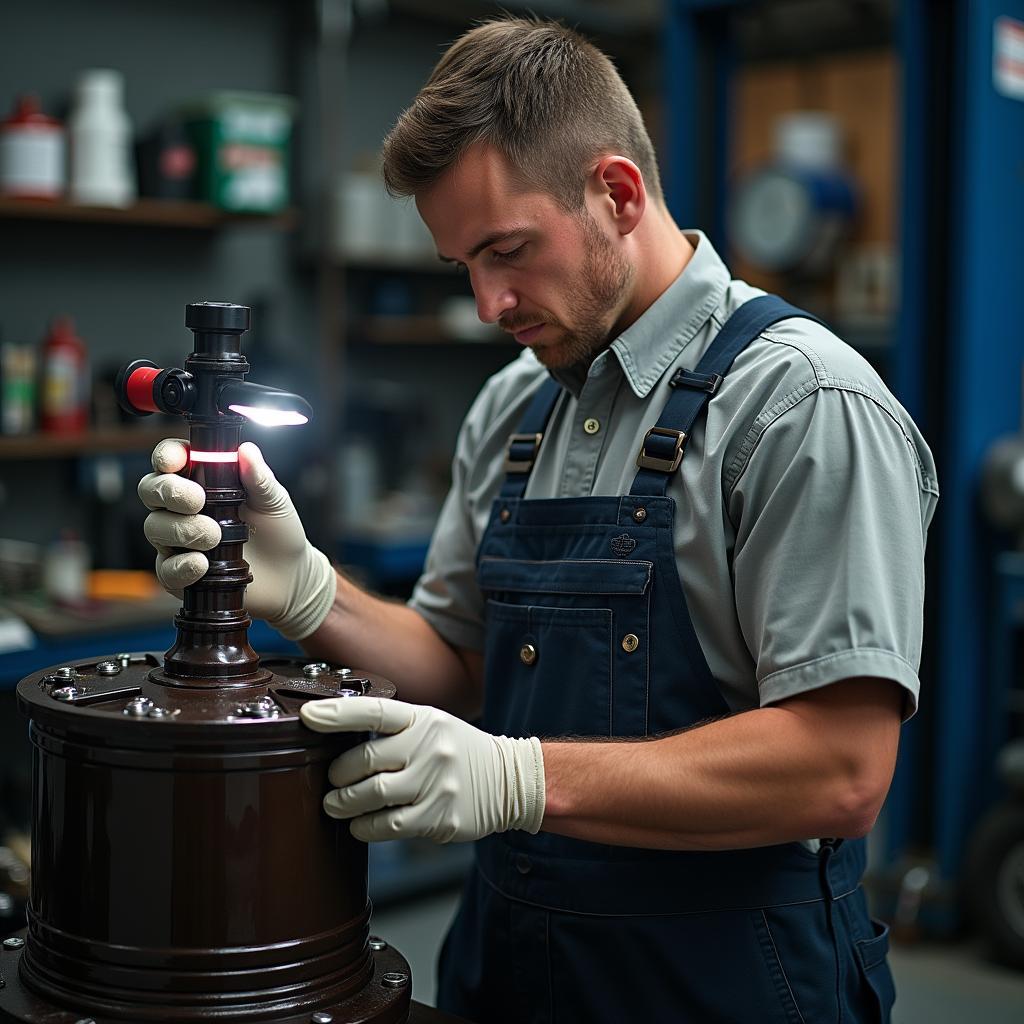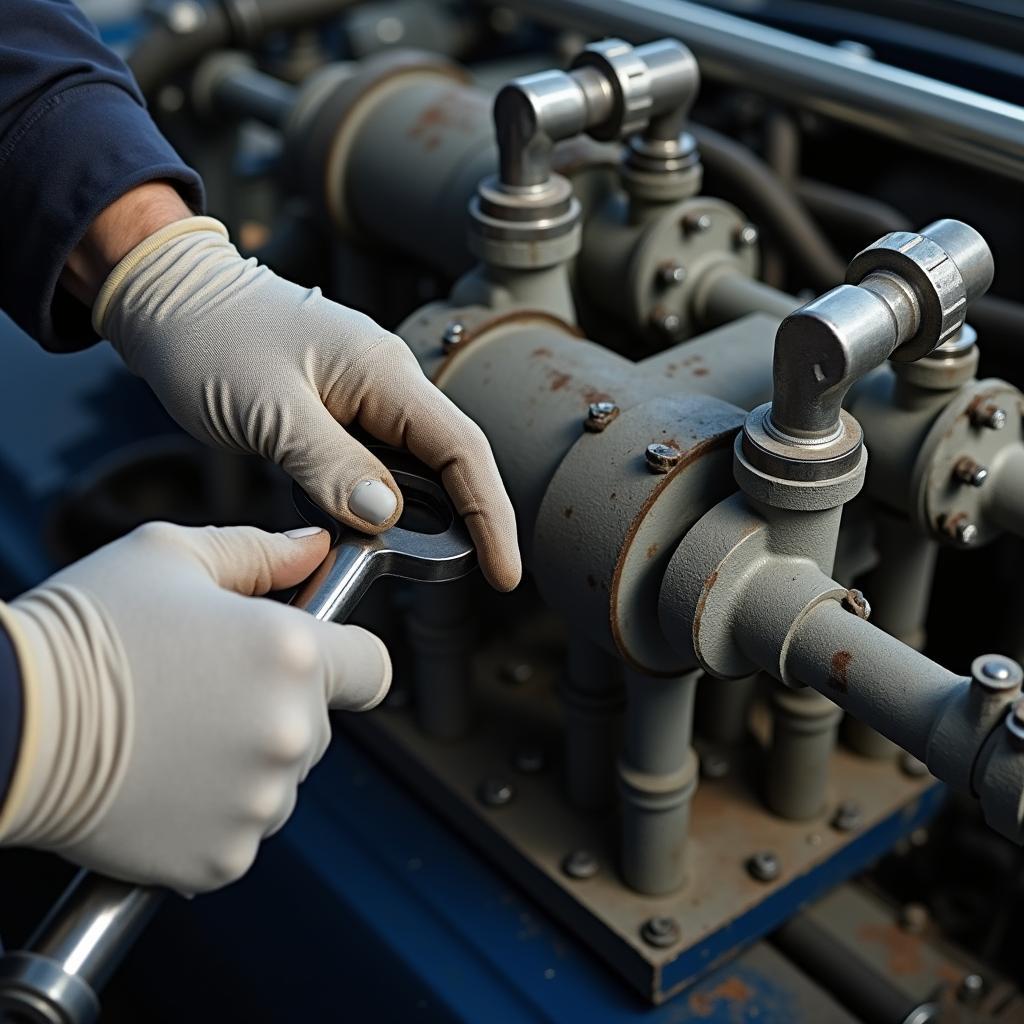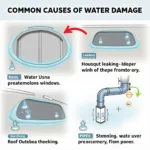Oil separator inspection is an essential part of operations for any auto repair shop that works with oil and gasoline. But why is this check so important, and what does it even involve? In this article, we’ll highlight the importance of oil separator inspection, explain the legal basis, and provide you with valuable practical tips.
What is an Oil Separator and Why is it So Important?
Imagine if the used oil from your last oil change simply entered the wastewater system. The consequences would be devastating: contamination of groundwater, environmental damage, and high cleanup costs. This is exactly where the oil separator comes in. It functions as a filter in the wastewater system, separating oil from water before it enters the sewer.
But like any filter, the oil separator also needs regular maintenance and inspection to ensure its full functionality.
Oil Separator Inspection: Legal Obligation and Environmental Protection
Regular oil separator inspection is not just a matter of environmental protection but is also legally mandated. “The monitoring and maintenance of separator systems are regulated in DIN EN 858-1 and DIN 1999-100,” explains Dr. Ing. Markus Schmidt, environmental engineer and expert in wastewater technology. Violations of these regulations can lead to significant penalties.
Procedure for a Professional Oil Separator Inspection
But what actually happens during an oil separator inspection?
- Visual Inspection: First, the oil separator is checked for external damage and corrosion.
- Function Test: The oil separator’s functionality is then tested by verifying that oil is properly separated from water.
- Sludge Level Measurement: The sludge level in the oil separator is measured. If the sludge level is too high, the oil separator must be emptied.
- Documentation: All inspection results are recorded in an inspection report.
 Technician inspecting an oil separator system
Technician inspecting an oil separator system
Benefits of Regular Inspection
Regular oil separator inspection offers numerous advantages:
- Safety: You prevent costly repairs and downtime.
- Environmental Protection: You make a significant contribution to protecting the environment.
- Legal Certainty: You meet legal requirements and avoid fines.
Frequently Asked Questions about Oil Separator Inspection
- How often does the oil separator need to be inspected? The frequency of inspection depends on various factors, such as the size of the oil separator and the type of operation. Generally, however, inspection should occur at least once a year.
- Who is permitted to carry out the inspection? The inspection may only be performed by a specialist company.
- What does an inspection cost? The cost for an inspection varies depending on the provider and the scope of work.
 Professional performing maintenance on an oil separator
Professional performing maintenance on an oil separator
Other Important Information for Your Auto Shop
In addition to oil separator inspection, there are other important topics relevant to the safe and environmentally compliant operation of your auto shop:
- Proper disposal of used oil and other hazardous substances
- Maintenance and cleaning of vehicle lifts and other workshop equipment
- Training employees in environmental and occupational safety
You can find further useful information and practical tips about workshop supplies at autorepairaid.com.
Conclusion: Invest in the Future of Your Auto Shop
Oil separator inspection is an important investment in the future of your auto shop. By doing so, you protect not only the environment but also your business.
Need assistance with inspecting your oil separator?
Contact us! Our experts are happy to assist you with advice and support.

